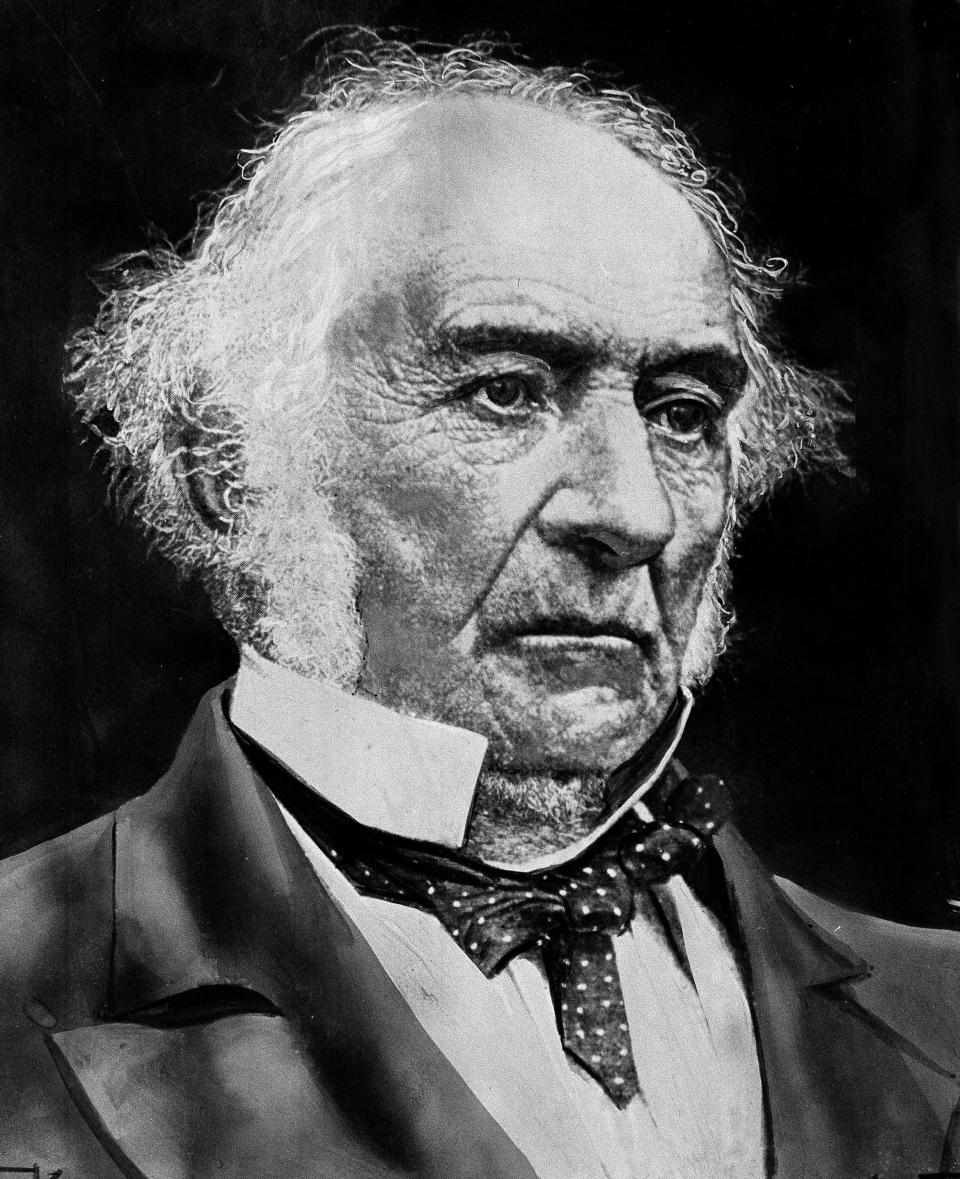With better health and longevity, it's natural that older leaders have become common
- Oops!Something went wrong.Please try again later.
- Oops!Something went wrong.Please try again later.
Perhaps you've heard of Aristophon of Azenia. He was an Athenian statesman who lived to be about 100 years old (435-335 B.C., more or less). Great age was not rare in ancient Greece, where a low-fat diet and an obsession with participatory sports tended to keep people healthy.
What's amazing is that Aristophon's career spanned almost that entire century. He first appears as a diplomat sent to negotiate with Sparta in 412 during the Peloponnesian War. After decades of service, and surviving 75 impeachments (the bar for impeachment was low in those days), Aristophon finished his career in the 340s, warning Athenians against the perfidious Philip of Macedon, father of that world-conquering brat, Alexander.
I don't know if anyone in American politics today could rise to Aristophon's level of statecraft. But many are approaching him in age, and maybe that's not a bad thing. Read on about some other pioneering older statesmen.
More from Michael Stephens:
Florida's not-so-ancient ruins: Spanish outposts, citrus packing houses and more
If you place obscenities where kids can see them, you are not a conservative
Floridians are progress-obsessed, historically rootless and boundlessly optimistic
Mark Antony Gordian was Roman governor of the province of Africa in A.D. 238. When revolution broke out against the boorish emperor Maximinus, reputedly a former bandit, Gordian was proclaimed emperor. At about 80, he was the oldest man ever to become emperor of Rome.
As a senator, former general, former governor of the frontier province of Lower (northern) Britain and a noted intellectual for good measure, Gordian was just the leader the empire needed in a time of troubles. He moved quickly to establish a government. Unfortunately, Maximinus was able to call in some favors from Capelianus, governor of adjacent Numidia, who had an army Gordian could not match.
Even then, the Roman Senate was sufficiently impressed with Gordian to elect his promising young grandson emperor as Gordian III. Maximinus was soon tossed on the rubbish heap of history, quite literally.
Let's fast-forward a few centuries, because in the Middle Ages almost no one lived to be what we would consider old. What with drafty castles, life membership in the war-of-the-month club and doctors whose every prescription involved some form of toad, your average absolute monarch was lucky to find a pope in time to be crowned before dying of the latest plague.
The British prime ministry has seen extremes of age. William Pitt the Younger donned his big-boy knee breeches in 1783 at the age of 24, and proceeded to kick the French up and down the globe for the next couple decades.
We're more concerned with William Gladstone, who was prime minister four times and would doubtless have returned for yet more political sequels had his own Liberal Party not booted him from office for being too liberal.

Gladstone was 83 when he wrote the Second Irish Home Rule Bill in 1893. Intended to give autonomy to neglected Ireland, the bill was introduced by Gladstone in a brilliant three-hour speech that opened months of debate.
Eventually the bill was rejected, and so was Gladstone. After a year of smugness, so was the Liberal Party. It would remain out of power for a decade.
Winston Churchill's second term as prime minister (1951-55) began when he was a mere 77. Not having to fight Nazis every day like in 1940-45, he had time to craft moderate domestic policies that still influence Britain today. He also reasserted British power overseas and helped lead the struggle against international communism.

On the continent, Konrad Adenauer served as chancellor of Germany for 14 years (1949-63), starting at the tender age of 73. Almost singlehandedly, he transformed West Germany from one giant bomb crater into a modern, democratic and rather peaceful state. Even after resigning the chancellorship, Adenauer remained active as leader of the Christian Democrats until he was 90.
There may be no Aristophons among our older politicians today. But there are certainly no Pitt the Youngers among the young ones. Let's not dismiss older politicians as "fossils," as unthinking critics often do.
Among important American leaders, Nancy Pelosi is 82, Bernie Sanders 81, Mitch McConnell 80, Joe Biden 79, Donald Trump 76, and Joe Manchin 75.

You may not like them. You can't possibly like all of them; such a contradiction would cause your brain to explode. Yet it's hard to deny their ability.
With better health and longevity, it's natural that older leaders have become common. Like automobiles, they get more miles today. Those with intelligence, energy, and commitment are at the culmination of their careers.
If anything, it's the young we should be wary of. Hotheaded novice politicians spout socialist and fascist ideas, but do you really want those ideas?
America doesn't need modern Alexanders, weeping because there are no more traditions to conquer.
Michael Stephens lives in Gainesville.
Join the conversation
Letters to the editor present the opinions of readers on news stories and other pieces published by The Sun. Share your opinions by sending a letter to the editor (up to 200 words) to letters@gainesville.com. Letters must include the writer's full name and city of residence. Additional guidelines for submitting letters and longer guest columns can be found at bit.ly/sunopinionguidelines.
Journalism matters. Your support matters.
Get a digital subscription to the Gainesville Sun. Includes must-see content on Gainesville.com and Gatorsports.com, breaking news and updates on all your devices, and access to the eEdition. Visit www.gainesville.com/subscribenow to sign up.
This article originally appeared on The Gainesville Sun: Michael Stephens: Older leaders like Pelosi, Biden, Trump more common

